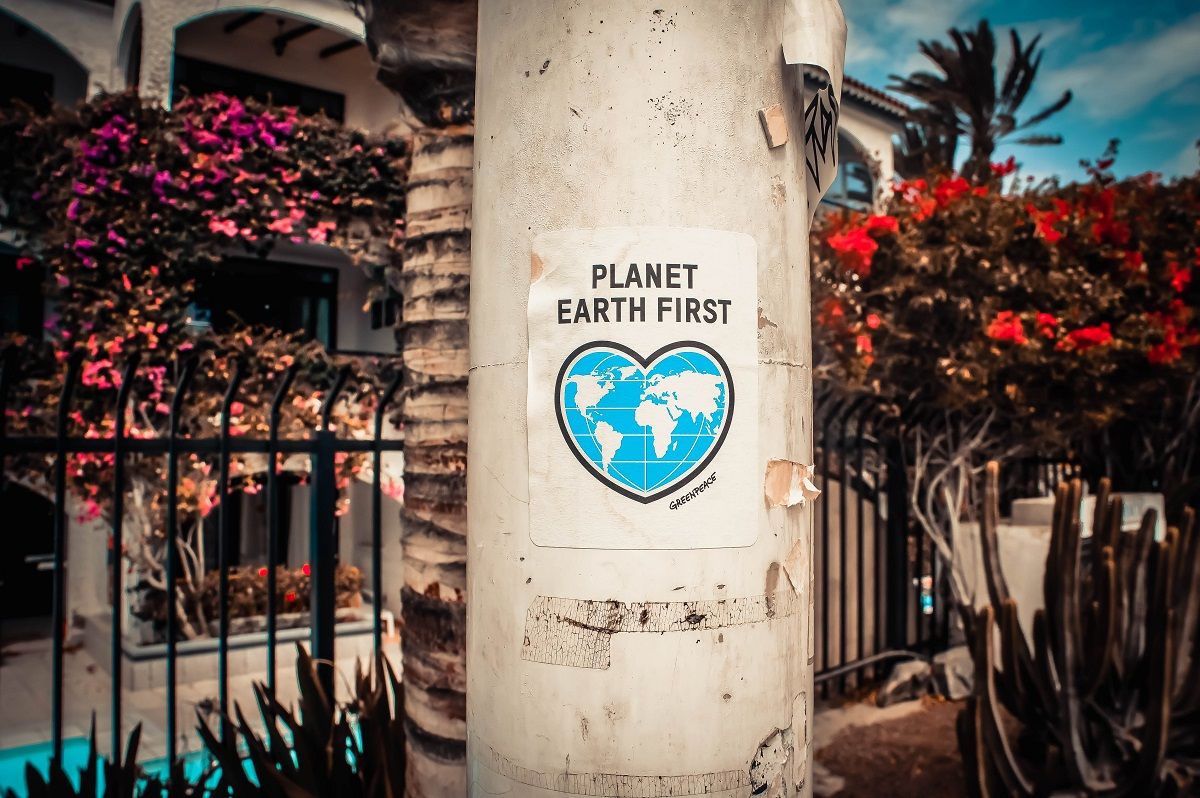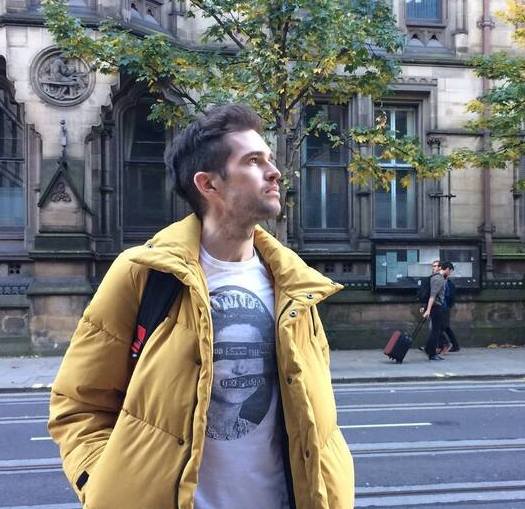While grand gestures are really cool, it’s often the little things you do when no one’s looking that go a long, long way to restoring our planet’s health.
So let’s take a look at 21 ways to help the planet in 2021.
#1. Start a compost heap
Is 2021 going to be the year you finally start a compost heap?
A compost heap limits the need for chemical fertilizers, reduces landfill waste and it helps you recycle your waste.
You can even start composting in your apartment: take a look at our guide!
#2. Make laundry time more efficient
Did you know that washing machines use a LOT of energy?
The exact amount varies, but you can look at the energy efficiency rating of your machine.
To make your laundry time more efficient, it’s a smart idea to do a wash with your housemate (make sure you ask them first, of course), and maybe avoid using the dryer now and then.
Also, you could try washing with soap nuts and/or at the lowest temperature.
#3. Spend less time in the shower
Sure, nothing feels better than a long, soapy shower after a hard day’s work. Especially if you’re stressed, showers are a great way to cool down and relax.
But long showers are also kind of bad for the environment.
The best thing to do is to invest in a water-saving shower head —and to take shorter showers. You can do it!
#4. Use energy-efficient appliances
As well as washing machines, there are other household appliances that will be using up so much energy. These include your oven, your microwave, your fridge, and so on.
And we get it — buying new appliances is costly. If you don’t have room in your budget for that sort of thing, it’s totally cool.
On the other hand, if you do have room in your budget and you’ve been thinking of replacing your old appliances for a while, it’s a good idea to buy energy-efficient appliances.
For instance, smaller washing machines are great investments if you live alone, and you should also make sure to check the energy label before you buy an appliance. These labels usually contain a letter ranging from G to A+++, with the latter being the most efficient.
#5. Get on your bike more
I don’t know about you, but I’ve been getting out and about on my bike much more during lockdown. Bikes are a lot of fun, and they allow you to see things you usually miss when driving your car.
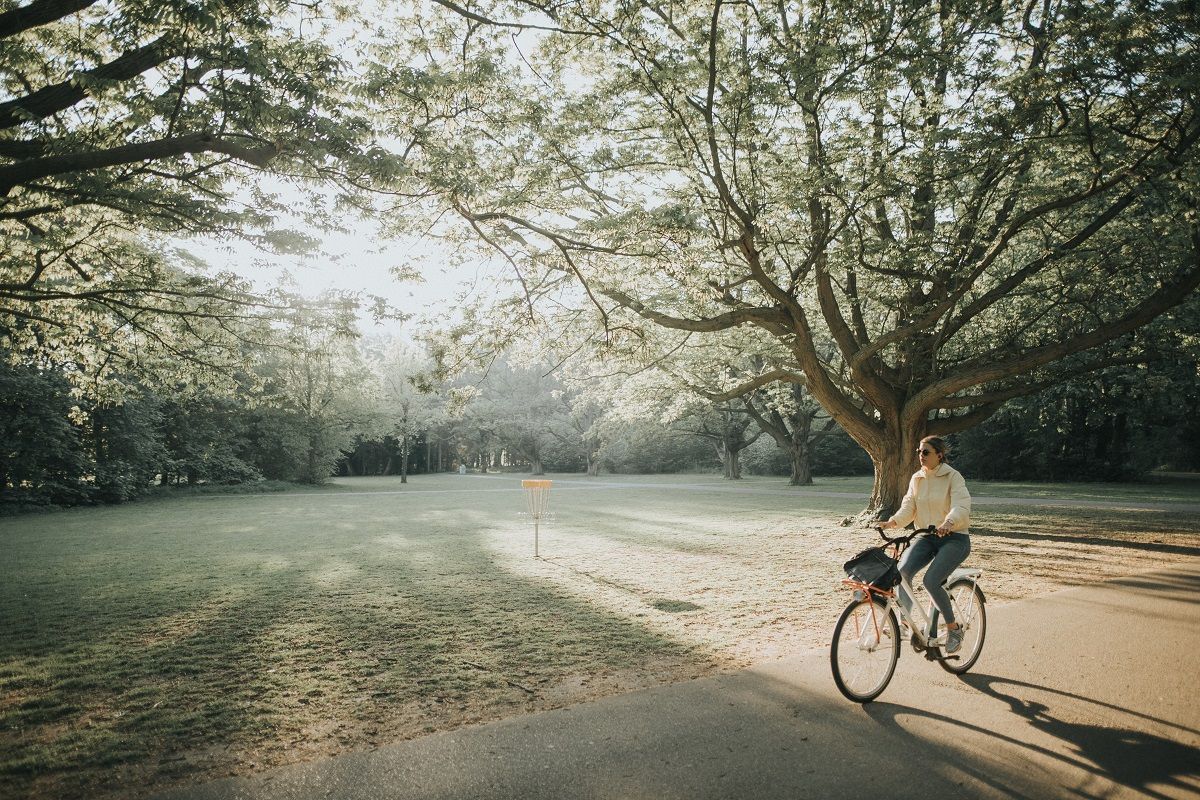
And if you’re the type of person who literally uses your car for everything, including popping to the store for some bread, now’s the time to invest in a bike and use it more.
Plus, you’ll get healthier, too.
#6. Buy locally-sourced food
Now that more people are working from home, it means more of us are spending less time buying our lunch (and even our breakfast) from cafes, restaurants, and bars.
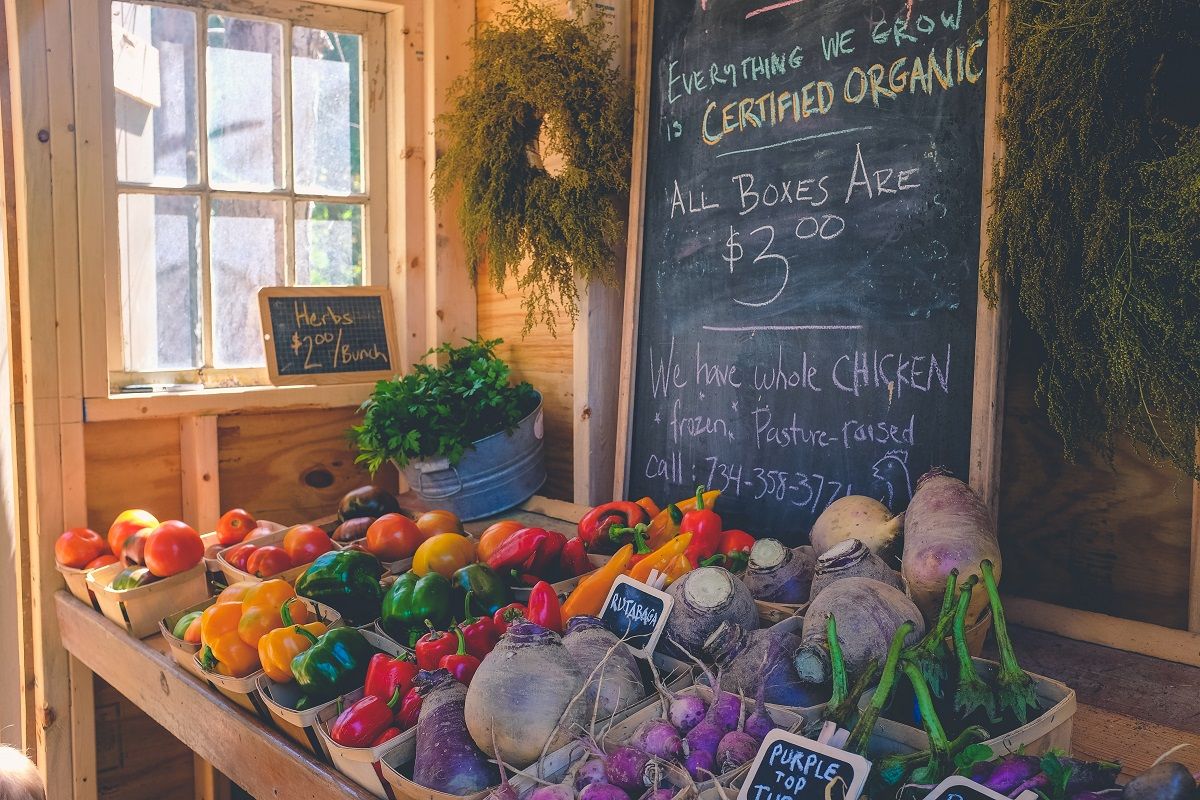
So if you’re working from home, why not buy more locally sourced food for your lunch?
(And why not buy more locally sourced food in general?)
Buying local really helps the environment. You’ve got lots of options too, including farmer’s markets, community gardens, and traditional markets, too.
#7. Donate
If you donate already, that’s really cool. But if you’ve often thought about donating but you’re not sure who or what to donate to, there are lots of ways to tackle the earth’s decline via small (or big) monthly donations.
For example, you could become a member of WWF. You could also adopt an animal or donate to the Environmental Defense Fund.
#8. Buy a reusable water bottle
This might only seem like a small thing — but it’s bigger than you might think.
Water is, of course, the elixir of life, but the problem is with plastic water bottles. Many of us like to purchase and drink our water on the go, especially during a jog or a hike, but plastic is just downright bad for the planet.
This is where reusable water bottles come in. Reusable water bottles can be filled and refilled throughout the day, and you should make it your mission to carry yours everywhere with you.
#9. Be more political
2020 was a highly charged year, with more and more people feeling compelled to get involved with politics. Major issues were on the table, including the environment, social injustice and — of course — how different governments reacted to the pandemic.
The ways in which governments reacted has been a major talking point, especially with the global vaccination program’s alleged inequality.
As a result, there’s really no better time to get involved with politics, especially when greener politics are needed more than ever.
#10. Read more (but borrow books)

NatureHub encourages everyone to read. In fact, we published a whole article about sustainability books everyone should read.
But while books are cool, buying new books all the time isn’t super sustainable.
So what’s the alternative?
Grab yourself a library card and rent more books.
Borrow books from friends.
Go to secondhand book stalls and see what treasures await you.
#11. Go on holiday (yay) but learn how to travel sustainably
While it’s not guaranteed that some of us can travel at all in 2021, if there comes a time when you can personally travel it’s really important that you learn how to do it sustainably.
Lockdown has naturally limited travel, with researching showing that CO2 emissions from flights was slashed to 60% at the peak of the pandemic. No one wants to see those numbers surge again — but we’d all surely love a getaway.
As such, we highly recommend that you read up on how to travel sustainably in 2021 and beyond.
#12. Go to zero waste stores
Zero waste stores are here, there, and everywhere. Despite the pandemic, they’re still going strong in the U.S. (thank goodness). With zero waste stores, you get to bulk up on delicious organic food and produce — but without the bags and the waste. So cool.
Check out our guides to zero waste stores across the U.S. and UK.
And don’t forget to check out the NatureHub app to find your nearest zero waste store, too!
#13. Grow your own plants
Growing your own plants yields multiple benefits. Not only can plants act as a great food source for yourself and your friends, family and neighbors, studies have shown that plants boost our mental and emotional well-being.
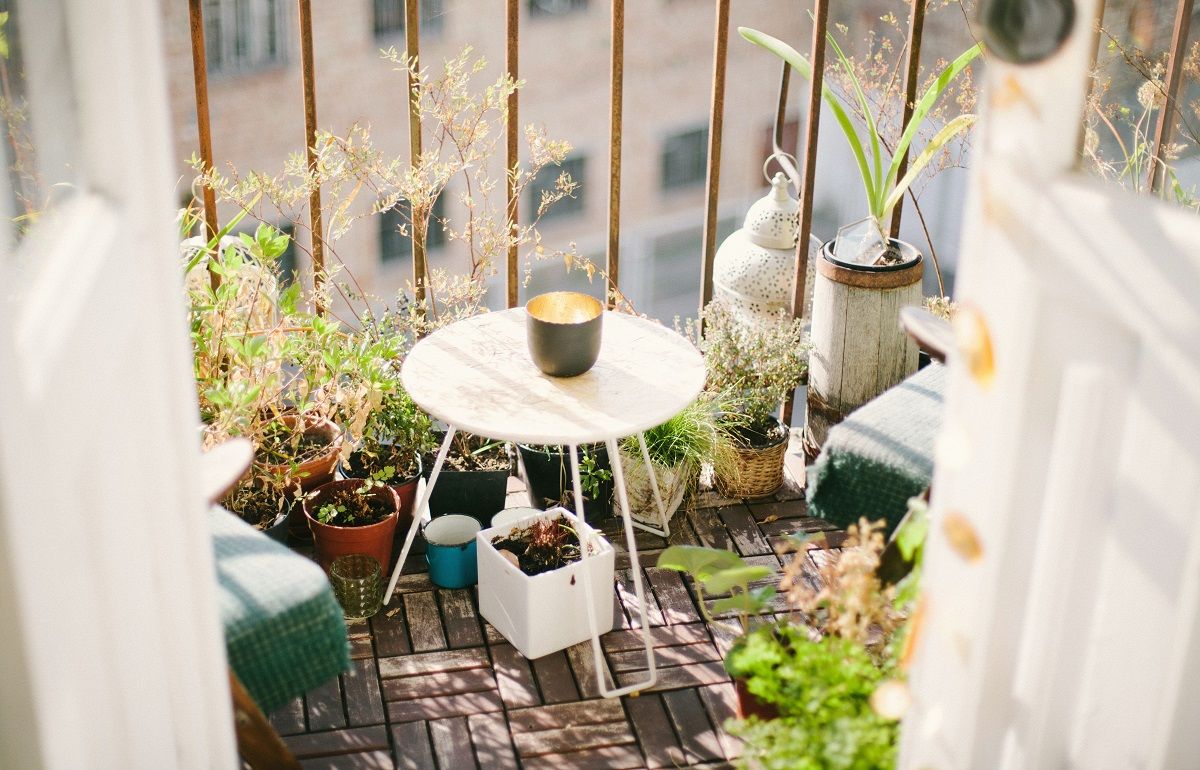
If you live in an apartment and you’re not sure how to get started, here’s a great resource.
#14. Be more sustainable if you work from home
Currently, it’s estimated that as much as 30% of the American workforce will still be working from home at the end of 2021.
This can often mean more takeaways, even more screen time, more waste — and more ill health for our planet.
If you’re working from home, here are some sustainability practices you can maintain:
- Use the optimal energy saving settings on your computer
- Learn how to cook (it will save so much waste)
- Learn how to meal prep (again, will save SO much waste)
- Go for more walks and learn about nature (you might have more time!)
- Purchase eco-friendly office equipment, such as paperless notebooks and biodegradable pens
- Don’t forget to unplug your devices when you’re not using them
#15. Buy less
One of the quirks of the pandemic is that online shopping has rocketed.
But do we always need everything we buy? Or have many of us been guilty of “comfort spending”?
Well, 2021 is here now, and it might be high time we curbed our spending a bit. After all, the more we buy, the more waste we inevitably create.
Set some goals. Before you purchase anything, ask yourself “Do I really need this? How long will this last? How much would I pay for this if it weren’t on sale?”
#16. Shop second-hand
Okay, so maybe you still want to buy some new clothes — but you want to do your bit for the planet.
How about shopping second hand?
Second hand/thrift stores are wonderful places to shop when you want to buy something but also want to be sustainable.
It’s not just clothes you can purchase second hand, too. You can purchase vinyls, books, toys and much more.
Check out our guide to thrifting/second hand shopping like a pro.
#17. Invest in organic essentials
Everyday essentials, such as items that you can find in our guide to the best climate neutral stores here, are — well — essential. But they can also be costly for the environment.
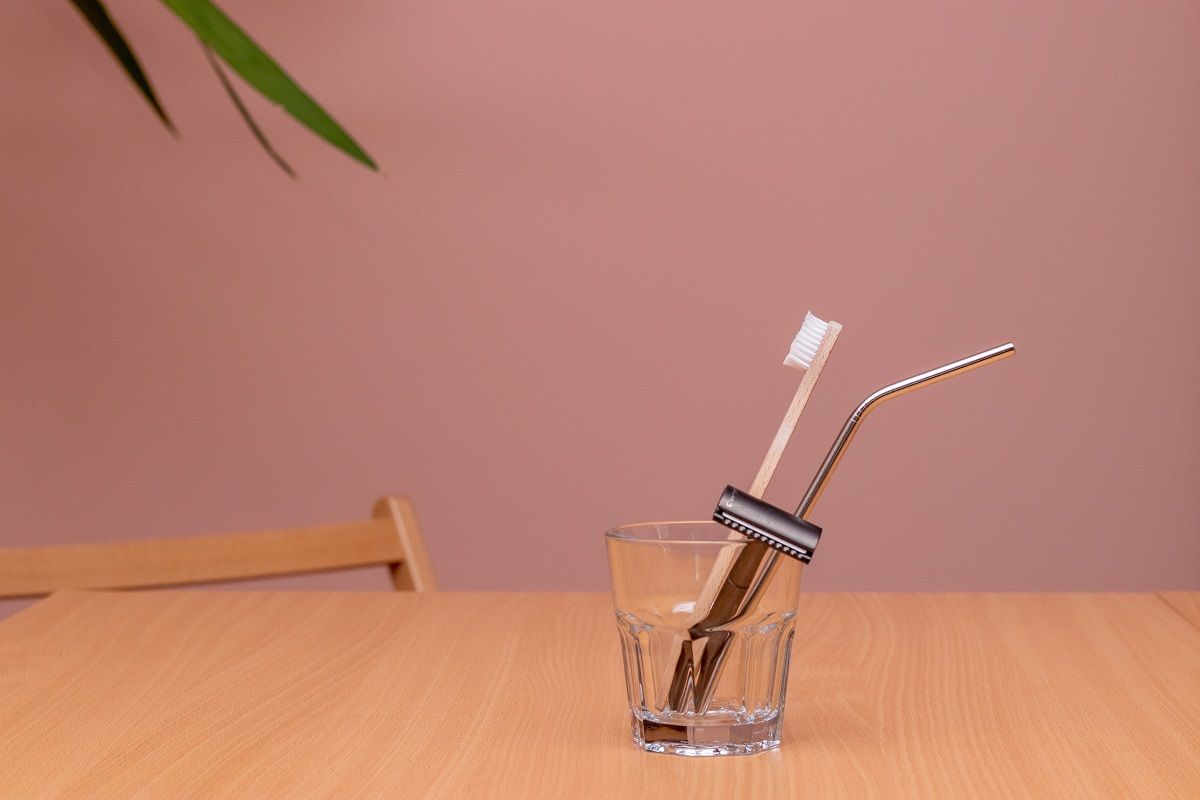
For example, all those hair and beauty products we use, bathroom products, pet accessories, and more can really damage the planet with their toxins and plastics.
So why not invest in "green" essentials instead, such as bamboo toothbrushes, eco-friendly utensils, and more? And yes, we do have a guide for switching to sustainable essentials. 😉
#18. Eat less meat
Naturally, we at NatureHub promote a plant-based diet, but we understand that not everyone who uses our app is 100% plant-based. That’s totally cool, but if you’ve been thinking about quitting meat for a while now, why not make this the year you make a start?
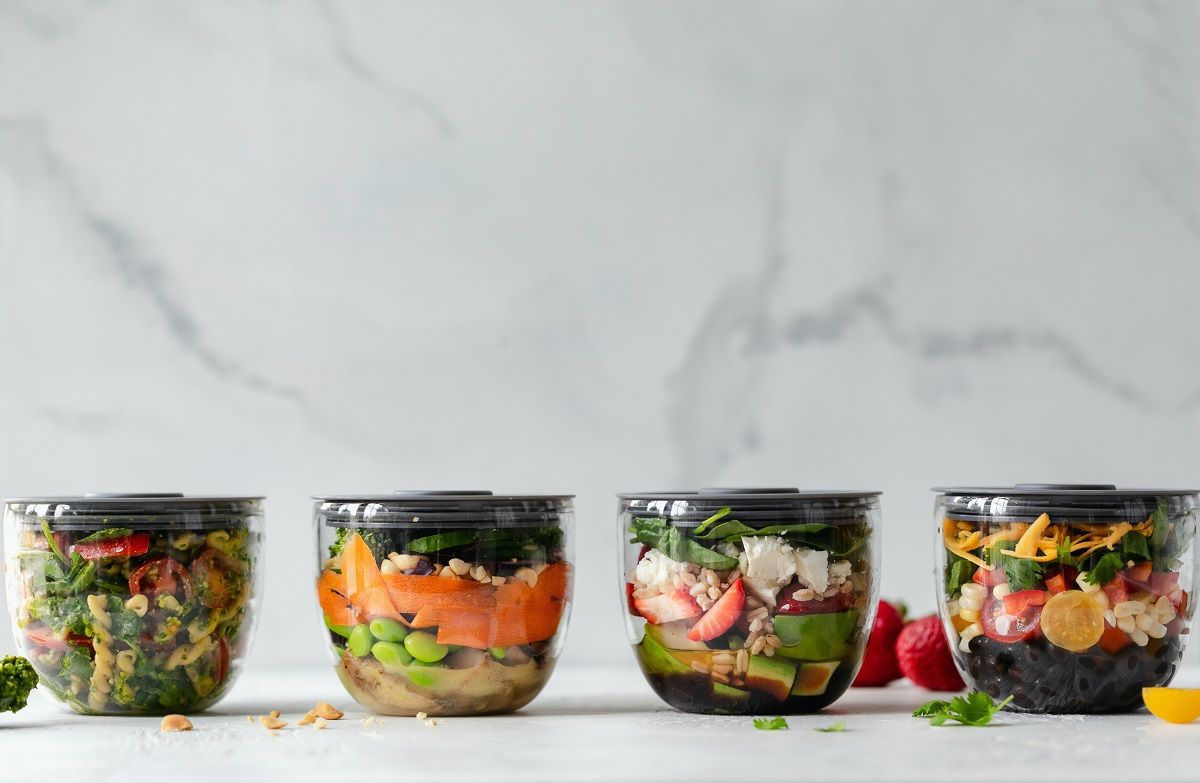
In fact, you could begin by reading our article all about how to transition to a greener diet. You don’t have to go cold turkey straight away, but simply reducing your meat intake can work wonders for planet. In fact, research has shown that if every single American cut down on meat, the U.S. would save as much as 82,000,000 tons of greenhouse gas emissions each year.
#19. Go volunteering
Sustainable volunteering includes things like cleaning the beaches, planting some trees, helping out on urban farms, and cleaning up your local rivals. It’s cool stuff that will be hugely appreciated by your community and the world at large.
Check out your local Facebook groups to see what’s going on in your area.
#20. Use all the paper
Did you know that paper accounts for a quarter of all landfill waste?
Wow.
And while many of us probably wasted lots of paper while working in the office, we may be wasting even more of it now we’re working from home.
Here are some tips:
- Print both sides of a sheet of paper
- Finish off a notebook before buying a new one
- Go paperless as much as you can
- Ask your bank not to send you paper bank statements
- Read online newspapers, as opposed to buying them
#21. Eat out sustainably
NatureHub has a Good, Green, Local section dedicated to helping you find the best sustainable/organic small cafes and restaurants all across the States and UK.
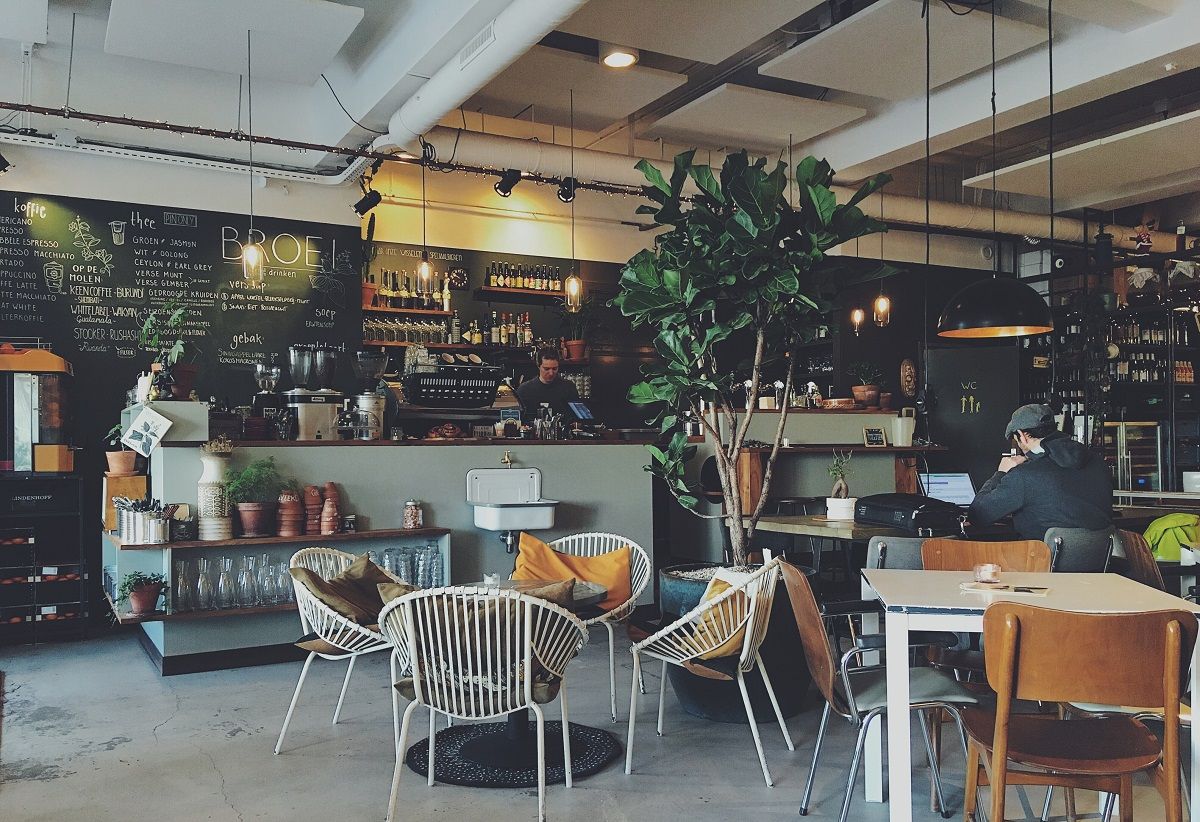
It comes in handy for whenever you want to eat out, but want to do it with the best intentions. You know, with scrumptious, yummy food that’s organic and locally sourced!
For more sustainable tips, be sure to check out NatureHub! 😉

